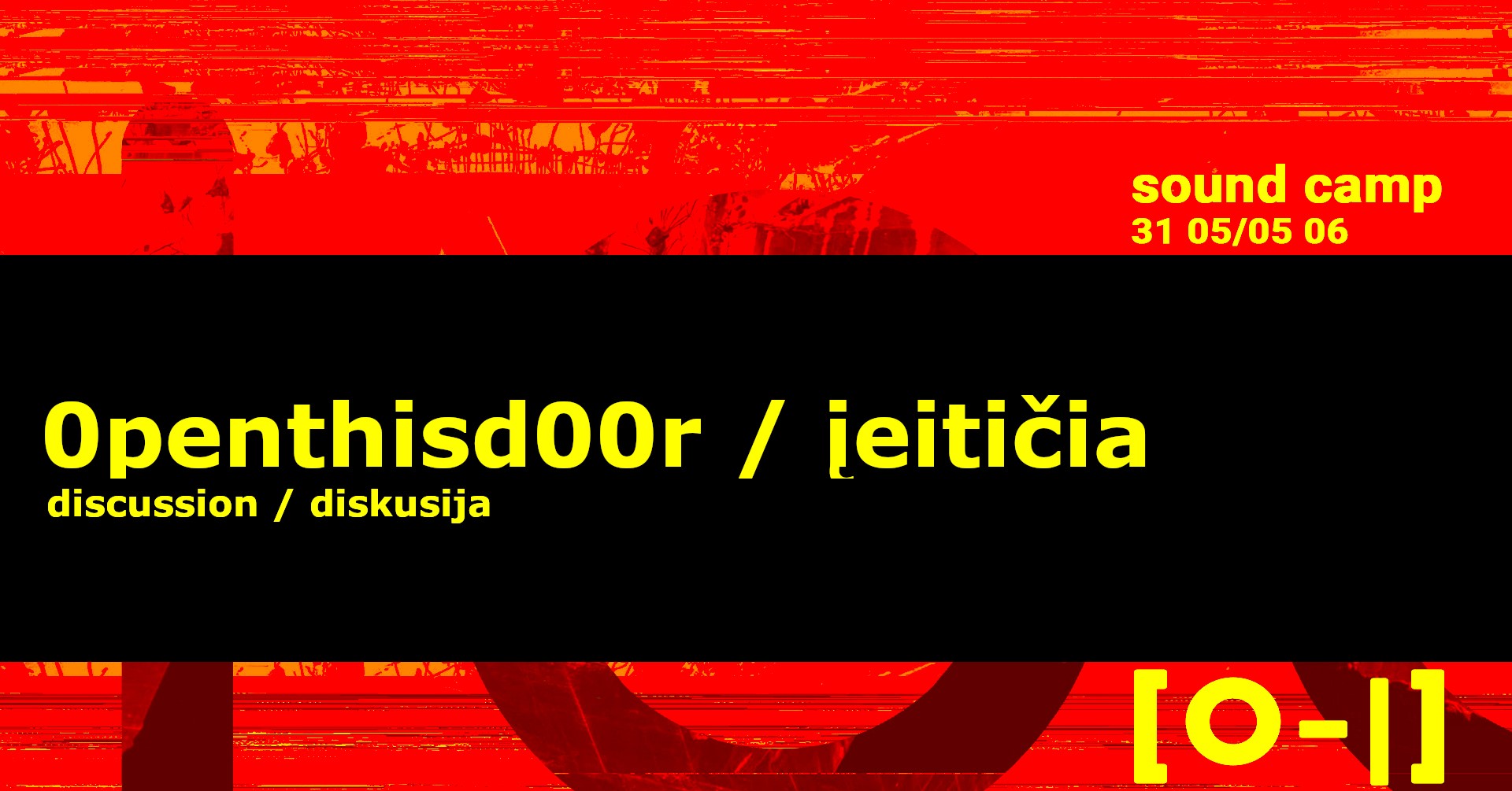
- This event has passed.
Discussion [0-|] / enterhere
2021-06-02/20:00 - 20:45

Access and possibility: who has the possibility, the right and the place to participate? Whom do we include, embrace and who stays behind some “door”? This question now is as important as it has always been throughout the history [of modernity].
How can we create more space/time for those that are underrepresented in what we could broadly define the scene of electronic music / sound? How can we create more access – to programming, to education, to sound, to arts, – for those that don’t have it for various reasons?
We’ve invited to take part and discuss their practice and experience:
Anna Wszeborowska, Technical Principal at Ableton, where she focuses on integrating the company’s flagship product Live with Cycling ’74’s Max. Before joining the Max for Live team, Anna worked on the second edition of Ableton’s hardware product Push and was part of the team responsible for the company’s instruments and effects.
Anna strives to make the programming communities more inclusive through various initiatives, both by running workshops for underrepresented groups as well as creating teaching materials that present challenging topics in an approachable way. Currently co-organizes a Berlin-based C++ study group for women, called dynamic cast.
Brigitta Bödenauer, lecturer at [0-|]. Brigitta is an Austrian sound, film and installation artist. A DJ in Vienna’s noise and experimental scene since early 1990s, she has been a lecturer and writer on film and visual media. In her artistic work Brigitta is interested in the movement of both light and sound, in representation of the inaudible through structures of light, and in the space in sound. Both in her visual and sound work she is exploring that which is beyond the tangible, from the tail of the reverb in a long dark tunnel, to emotionally charged sounds in political protests.
Vygintas Orlovas, lecturer at [0-|]. Vygintas is an artist and researcher. He is interested in communication, interference, the interrelations between the visual and the sonor as well as perceptions thereof. Vygintas has been lecturing since 2015, at present he teaches the basics of interactive arts and Pure Data programming environment, among other things.
Vygintas’ interest in the possibilities of and in-between the fields of sound and visual, have led him to an internship on Schlieren Flow sound analysis at OptoSigma, Japan. In 2019, Vygintas Orlovas defended his doctoral dissertation “Transformation: connections between visual and sound. Complex analysis of creating sound-scapes”, and presented his doctoral research in a personal exhibition “xqvhawhhef”.
William Bilwa Costa, lecturer at [0-|]. William is a conceptual artist based in Berlin, working in performance, sound and visual arts contexts. With a background in dub, visual art and design, Bilwa is exploring experimental multidisciplinary approaches to composition and performance of electro-acoustic music and sound art. He is interested in collaboration and exchange, hence through the artistic practice he is aiming at creating spaces for dialogue for practitioners from various fields. Pursuit of the dialogical approach and the interest in interdisciplinary exploration between the noise and architectural matters is among the reasons for which Bilwa has become a returning resident artist in the framework of the programme Matters.
The discussion is part of [0-|] sound camp, open to non-camp-participants. For participation online go here.
Sound camp [0-|] is organised by Matters. Platform for Industrial Culture, Kaunas Artists’ House and Kaunas 2022.
